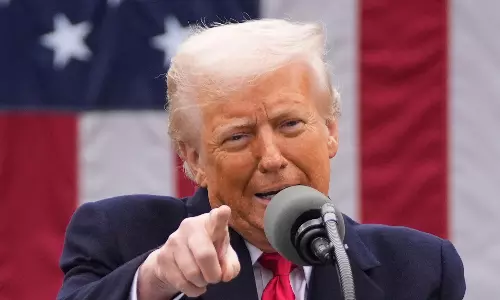Political Cinema

Were India a mature democracy, a film about the assassins of a Prime Minister would be absorbed with a minimum of fuss and, perhaps, some critical reviews by cineastes. The problem with our people is that even a portrayal of history in celluloid can trigger anxieties regarding peace among the populace. Even so, bans on films have been known to do very little, probably less in the era of pirated DVDs and the free Internet.
History cannot be wiped out. The assassinations of three Gandhis, the first the Father of the Nation and then those of Indira and Rajiv (unrelated to the Mahatma, of course), have been the subject of intense historical analysis with a million conspiracy theories abounding. When such a cruel death is treated with an academic bent of mind and cinematic excellence, as Richard Attenborough did in Gandhi, society stands up to applaud. Problems arise when cinematic licence is taken, and worse when political leanings come in, as is suspected in the case of Qaum De Heere, which glorifies Satwant Singh and Beant Singh the killers of Indira Gandhi as “Diamonds of the (Sikh) Nation”.
Intelligence agencies may warn of the possible resurgence of the militancy that had Punjab in its thrall for decades. But, as our experience shows with Madras Café in which the assassination of Rajiv Gandhi by a belt bomber was featured and which was banned only in Tamil Nadu, these things tend to peter out. It is a burden of our history that we must continue to suffer the occasional pangs of cinema too.


